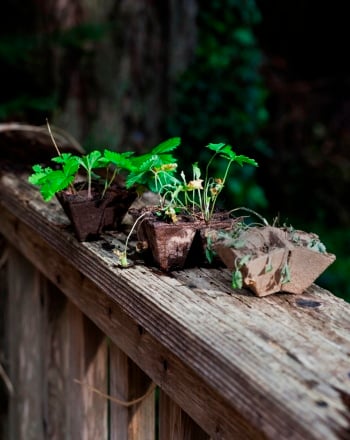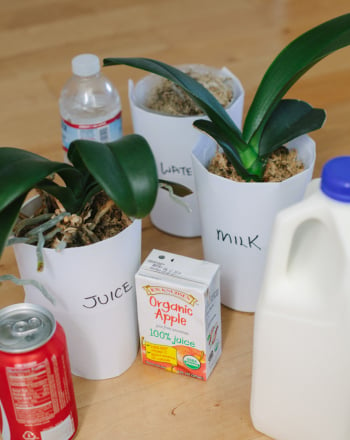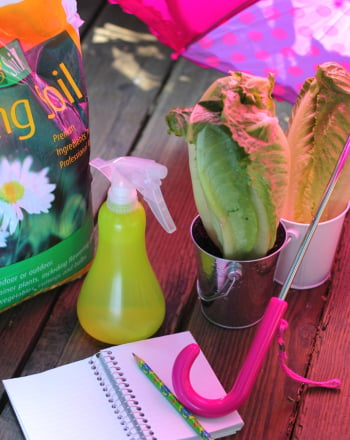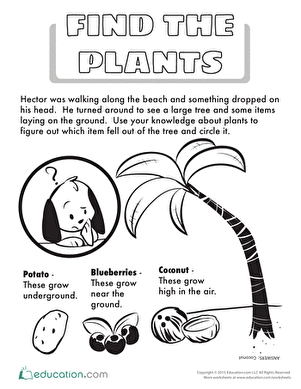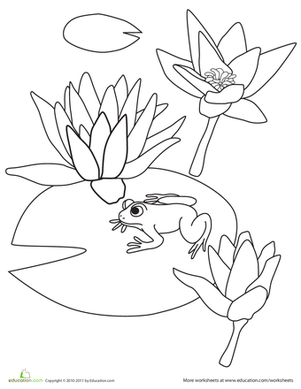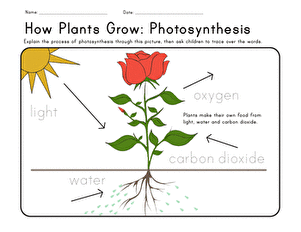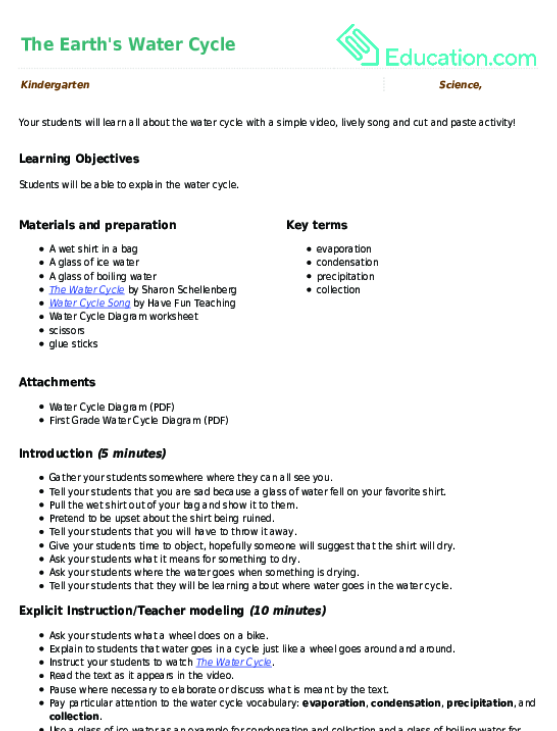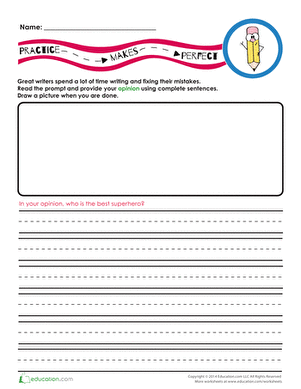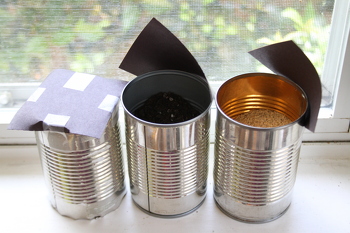Science project
Discovering the Best Water for Plants
Plants that live outside are often watered by the rain, but indoor plants are usually given tap water. Water, along with soil and light, is one of the three essential elements needed to help plants grow healthy and strong.
Rainwater and tap water are only two of many different kinds of water that can be used to help plants grow—and stay—healthy. So what is the best water for plants? Some kinds work to damage the stem, root or seed, while others provide important vitamins and nutrients that plant life needs to grow. Testing different kinds of water will help you discover which types to avoid using so that you don't hurt your plants, and which types help your garden grow tall and lush, with ripe vegetables and full flowers.
Problem:
Which type of water is the best water for plants?
Materials:
- 6 plants of the same size and shape
- 1 gallon rainwater
- 3 gallons tap water, divided
- 1 gallon bottled spring water
- 1 gallon distilled water
- 1 cup sugar
- 1 cup salt
- Watering can
- Sticky labels
- Ruler
- Notebook
- Pencil
- Marker
NOTE: If you're unable to gather your own rainwater, contact your local nursery or farm to see if they have any extra water collected in their rain barrels. If not, omit the rainwater from the project.
Procedure:
- Think about the plants you see outside every day. What kind of water do you think helps them grow big? What about the plants around your house—do they get as big as the plants outside? Write your notes in your notebook.
- Consider the different types of water you'll be testing, and then guess which kind you think will be best for the plants. Using the pencil, write down your guess, which is called a hypothesis, in your notebook. Also, jot down the type of water, if any, you think will stop the plant from growing to its full potential.
- Add 1 cup of sugar into 1 gallon of the tap water, and stir until the sugar dissolves. This will be your sugar water. Set aside.
- Add 1 cup of salt into a separate gallon of tap water, and stir until the salt dissolves. This will be your salt water. Set aside.
- Line your plants up in a row in a place where they will get the same amount of sunlight, such as a windowsill or in your backyard, away from any large objects.
- Using your marker, write down each type of water on a sticky label.
- Place each sticky label on a separate plant pot. The sticky labels will help you easily remember which plant gets which type of water.
- At the same every day, give each plant the type of water that's listed on its sticky label. Give each plant the same amount of water each day (such as 1/2 cup) to make sure that all plants are treated the same. Water each plant daily for 4 weeks.
- After one week, record any changes to the plants in your notebook. You can either draw pictures or write down what you see. Are any starting to wither away? If so, what type of water were those plants given? Are any of the plants bigger and brighter in color than the others? Which type of water did those receive?
- Repeat Step 9 at the end of the second, third and fourth weeks. Compare your notes from week to week; do you see a pattern? You can learn a lot about the effects of each type of water just by recording your observations in a notebook.
Results:
The rainwater and bottled spring water are great at helping plants grow, but the sugar water and salt water actually hurt growing plants. Tap water and distilled water may not hurt the plants, but you'll notice they don't grow as tall and proud as the plants that were fed rain and spring water.
Why?
To understand which type of water is best for plant life, it's important to know what's in each kind of water. Tap water and distilled water may keep your plants growing, but each contain chemicals like iodine and chlorine (often found in tap water) which can prevent the plants from reaching their full potential.
On the other hand, rainwater and spring water come from natural sources and don't have any added ingredients that can hurt budding greenery. Too much sugar or salt can actually kill plants—you may find the leaves on the plants that were fed sugar water and salt water start to turn a yellowish color.
The science doesn't have to stop here! Keep thinking about other liquids could help or hurt your little plants. What about apple juice? Soda? Milk? Make your guess as to which liquid will help plants thrive, and get experimenting. Afterward, try testing different types of soil to see which helps plant buds sprout, using dirt from your own backyard, potting soil, clay, sand, and silt.
Education.com provides the Science Fair Project Ideas for informational purposes only. Education.com does not make any guarantee or representation regarding the Science Fair Project Ideas and is not responsible or liable for any loss or damage, directly or indirectly, caused by your use of such information. By accessing the Science Fair Project Ideas, you waive and renounce any claims against Education.com that arise thereof. In addition, your access to Education.com's website and Science Fair Project Ideas is covered by Education.com's Privacy Policy and site Terms of Use, which include limitations on Education.com's liability.
Warning is hereby given that not all Project Ideas are appropriate for all individuals or in all circumstances. Implementation of any Science Project Idea should be undertaken only in appropriate settings and with appropriate parental or other supervision. Reading and following the safety precautions of all materials used in a project is the sole responsibility of each individual. For further information, consult your state's handbook of Science Safety.

